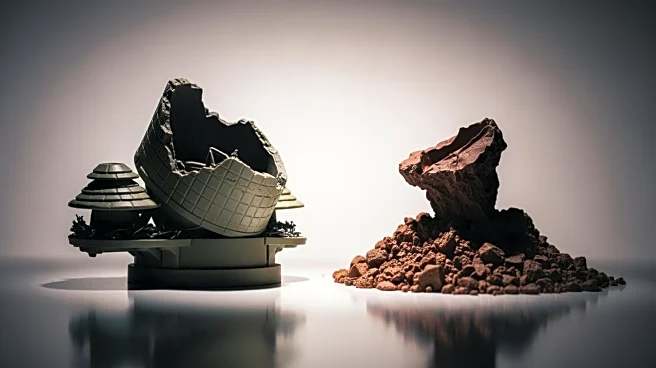What's Happening?
Iran's Supreme Leader Ayatollah Ali Khamenei has publicly refuted claims made by President Trump that U.S. strikes have destroyed Iran's nuclear facilities. Khamenei's statement, delivered via social media, directly challenges the U.S. narrative, asserting
that Iran's nuclear capabilities remain intact despite the U.S. president's assertions. This exchange highlights the ongoing tensions between the two nations, particularly following the collapse of the 2015 nuclear deal. The disagreement underscores Iran's continued commitment to its nuclear program, which has been a point of contention in international relations.
Why It's Important?
The public denial by Iran's Supreme Leader is significant as it reflects the persistent geopolitical tensions between Iran and the United States. The assertion that Iran's nuclear capabilities remain intact despite U.S. military actions could influence international perceptions and diplomatic relations. This development may impact U.S. foreign policy and its approach to Iran, potentially affecting negotiations and strategies aimed at curbing Iran's nuclear ambitions. The situation also poses implications for regional stability in the Middle East, as other countries may react to the heightened rhetoric and military posturing.
What's Next?
The ongoing standoff between Iran and the U.S. is likely to continue, with potential diplomatic and military responses from both sides. The U.S. may seek further international support to pressure Iran, while Iran could bolster its nuclear program as a form of resistance. The international community, including key stakeholders like the European Union and the United Nations, may play a role in mediating the conflict or proposing new frameworks for negotiation. The situation remains fluid, with potential for escalation or resolution depending on diplomatic engagements and strategic decisions by both nations.
Beyond the Headlines
This confrontation between Iran and the U.S. raises broader questions about nuclear proliferation and international security. The ethical implications of military actions targeting nuclear facilities, and the potential environmental and humanitarian consequences, are critical considerations. Additionally, the cultural and ideological dimensions of the conflict, rooted in historical grievances and power dynamics, continue to shape the narrative and influence public opinion in both countries.

















